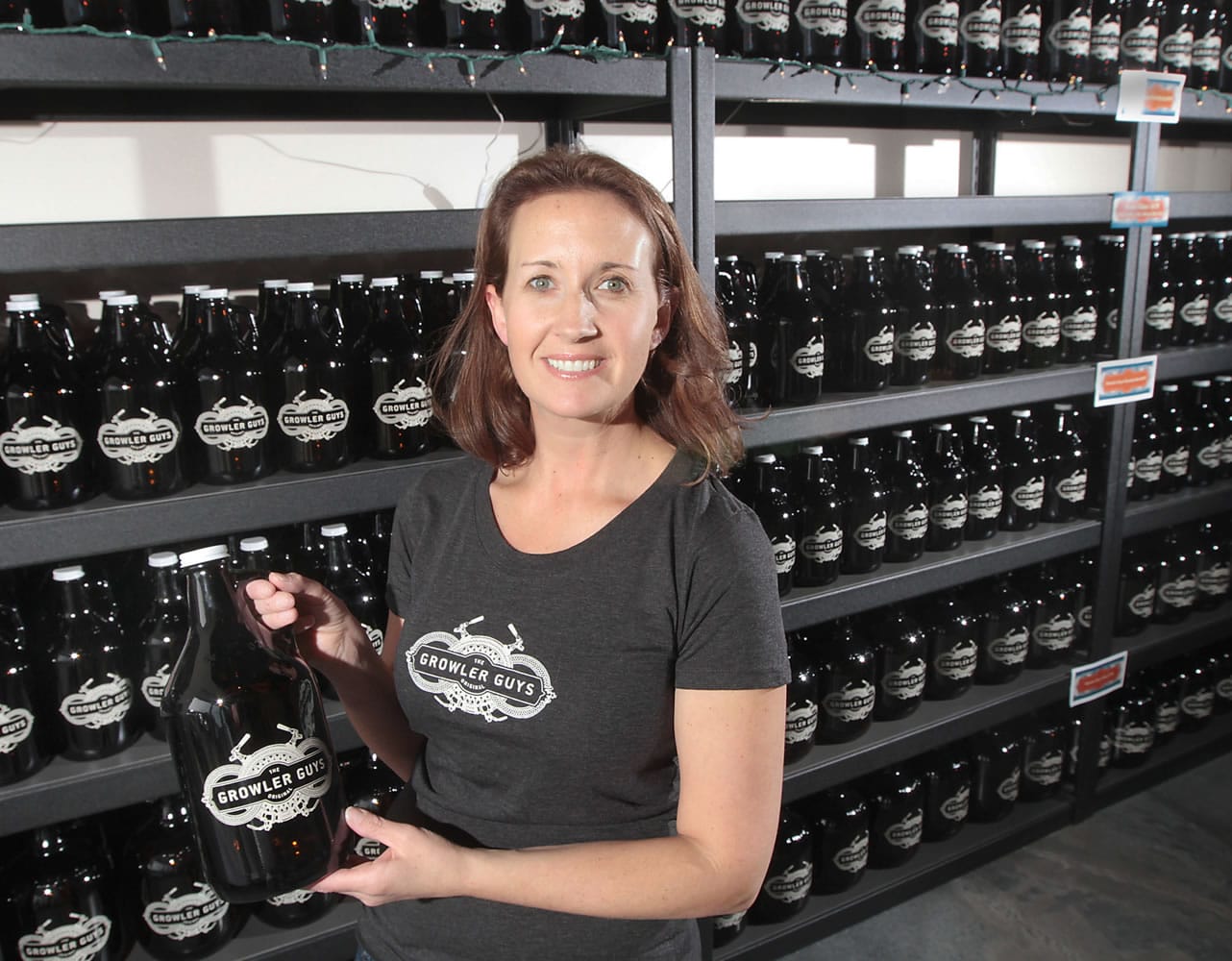Rep. Sharon Wylie, D-Vancouver, introduced House Bill 1742 in this year’s legislative session, which would have allowed businesses that sell beer growlers to also sell wine growlers. Wylie said the bill drew some support from other parts of the state but attracted little interest from Clark County’s wine industry. Legislators had some concerns about the bill, including possible conflicts between state and federal law, Wylie said.
A new bill is being drafted, and Wylie said she is willing to introduce a measure in next year’s legislative session. “If you look at trends, this is very common in Europe,” Wylie said. “It makes perfect sense as long as there are no unintended consequences.”
In April, the Oregon Legislature passed a bill allowing growlers of hard cider or wine to be sold in a broad range of businesses.
WINTHROP — At Lost River Winery in Winthrop, refilling reusable containers called growlers — with wine — is the second-most-popular offering after pinot gris.
Rep. Sharon Wylie, D-Vancouver, introduced House Bill 1742 in this year's legislative session, which would have allowed businesses that sell beer growlers to also sell wine growlers. Wylie said the bill drew some support from other parts of the state but attracted little interest from Clark County's wine industry. Legislators had some concerns about the bill, including possible conflicts between state and federal law, Wylie said.
A new bill is being drafted, and Wylie said she is willing to introduce a measure in next year's legislative session. "If you look at trends, this is very common in Europe," Wylie said. "It makes perfect sense as long as there are no unintended consequences."
In April, the Oregon Legislature passed a bill allowing growlers of hard cider or wine to be sold in a broad range of businesses.
But the winery’s owner, John Morgan, said he can’t offer wine in growlers at his Seattle tasting room near Pike Place Market.
That’s because state law doesn’t allow wine to be sold in growlers in any location other than the winery where it was made, he said.
It’s a barrier that wineries and other businesses are hoping to see the state Legislature address in its 2014 session.
What the Family Wineries of Washington State is asking for appears simple — allowing wine and hard cider to be sold in growlers at any location where beer can be sold, as well as winery tasting rooms, restaurants with beer and wine licenses, and specialty wine shops.
It’s a common practice in Europe and has already been embraced by other states, including Oregon, said Morgan, a board member of Family Wineries of Washington State.
The potential environmental benefits are huge, supporters say. About 65 percent of a winery’s carbon footprint, including vineyard operations, is glass, Morgan said. Glass is not very recyclable in a lot of places.
Piccola Cellars of Woodinville treats growlers like old-fashioned milk bottles. They take the pre-filled containers to farmers markets, where customers can exchange their empties for the new bottles, owner Diana Kaspic said.
The bottles are then sanitized and reused. Growler fills are also available at the winery.
Since Kaspic got into the business four years ago, she’s made her niche with growlers, kegs and 1.5-liter sauce pouches, which basically look like giant juice bags of wine.
With growlers, the wine is fresh, the price is low because of the lack of packaging, and the customer walks away with great wine to drink in the next few days, she said.
“We are making it too formal,” Kaspic said, adding that there are many ways to create a pleasant experience with wine.
Her primary business is providing kegs to businesses such as brew pubs, golf courses, resorts, restaurants and hotels. Her wines also are featured at six businesses in the greater Washington, D.C., metro area.
So far this year, Kaspic estimates her kegs saved about 47 tons of glass from ending up in landfills or recycling centers.
In the kegs, a mix of nitrogen and carbon dioxide sits like a blanket on top of the wine, preventing it from oxidizing. It doesn’t matter if it’s a week or six months, there is no chance of oxidation, Kaspic said.
“The consumer gets a really high-quality glass and it’s 100 percent fresh every time,” she said.
Restaurants like it because they don’t have to throw away wine still left in a glass bottle, Kaspic said.
The restaurants she sells kegs to tell her they have many customers who want to buy her wines to take home, but they can’t sell it to go in a growler under current law, she said.
When Geoff Gruetzmacher opened Growler Guys in Richland on Nov. 14, he hoped to sell craft beer and hard cider in the reusable containers.
But he sent the cider back to the distributor when he found that it would be at odds with state law. He hopes legislators will change the law, and said he would then add hard cider and consider adding wine.
“Cider hasn’t been as popular as it is now,” he said, attributing the popularity surge to the fact that cider is gluten-free.
To sell wine in growlers, businesses would need to get a license from the federal government, because wine can be bottled only at a bonded winery or a tax-paid wine-bottling house, he said.
But Morgan said it’s just another license and one-time fee that he would get in a heartbeat to use growlers at his tasting room.



